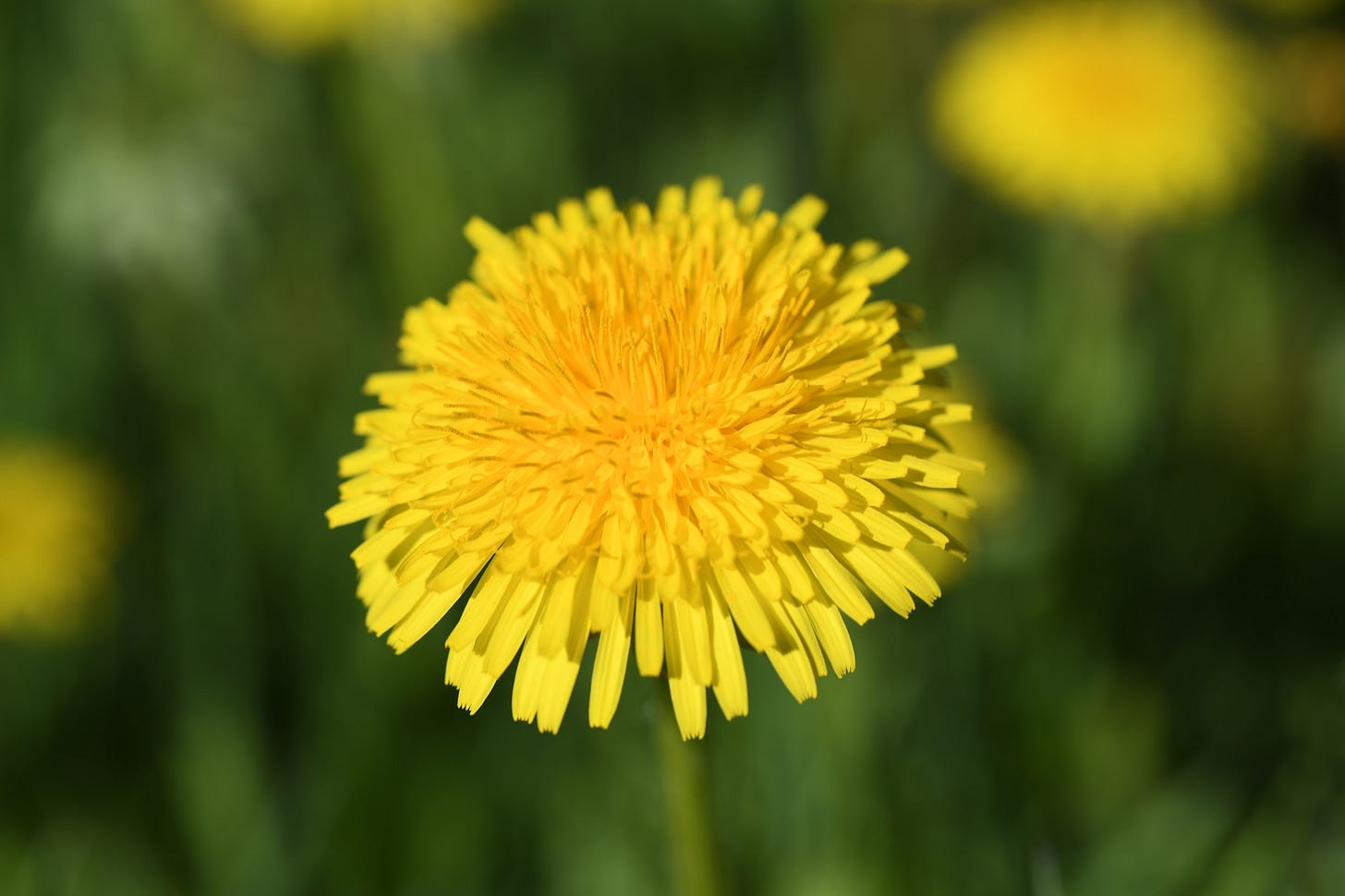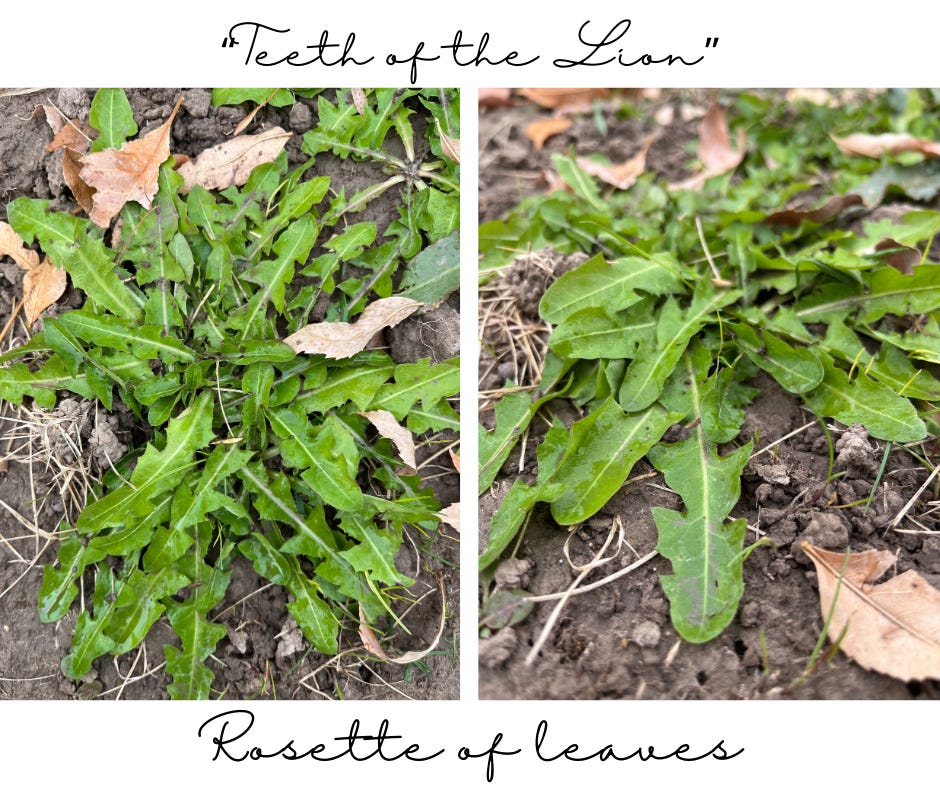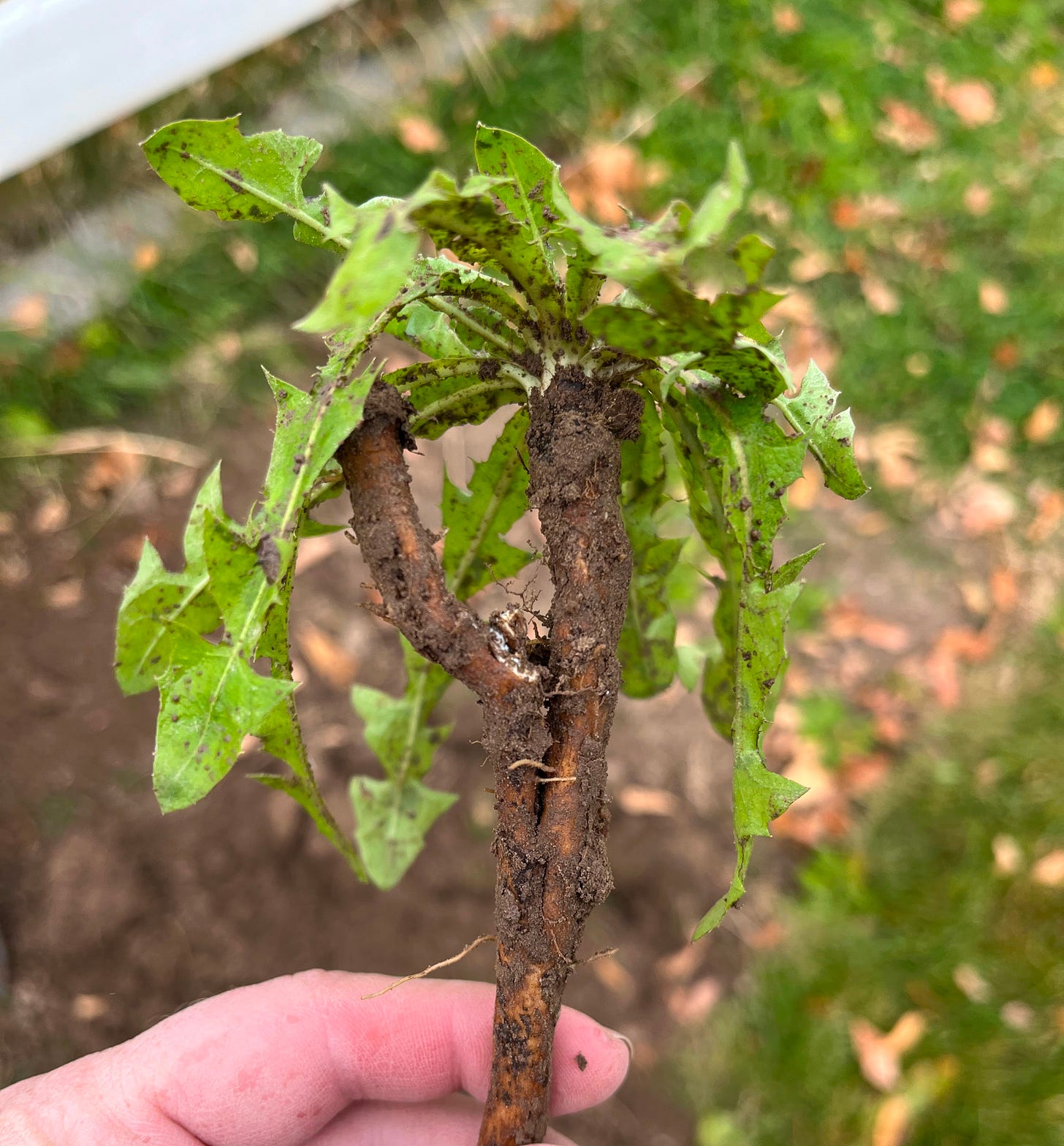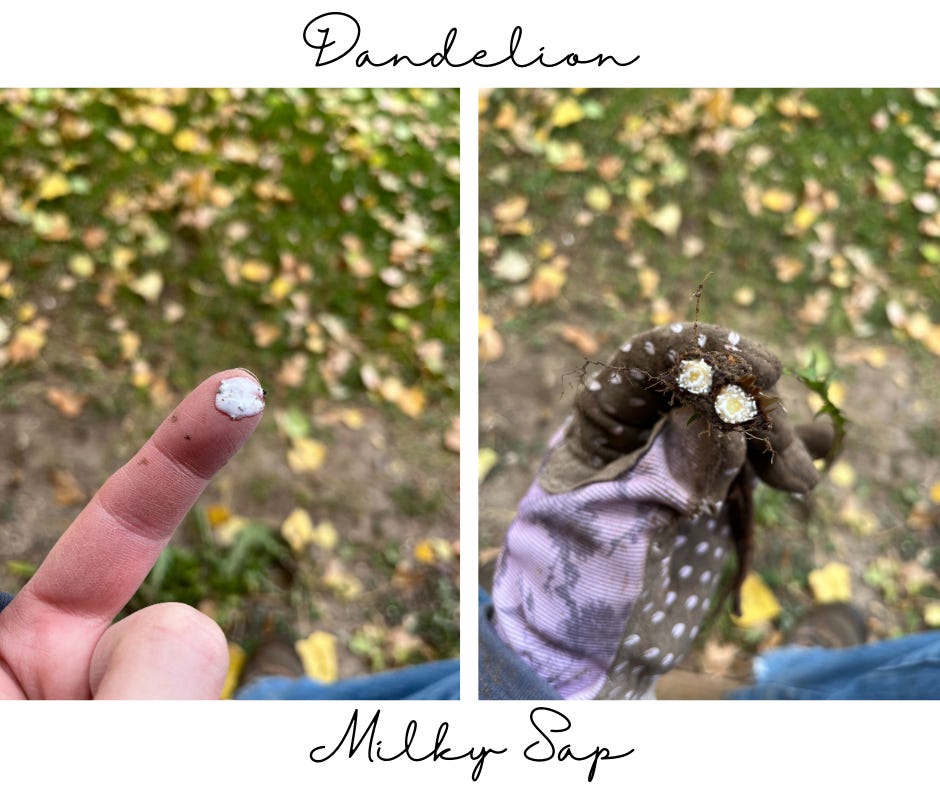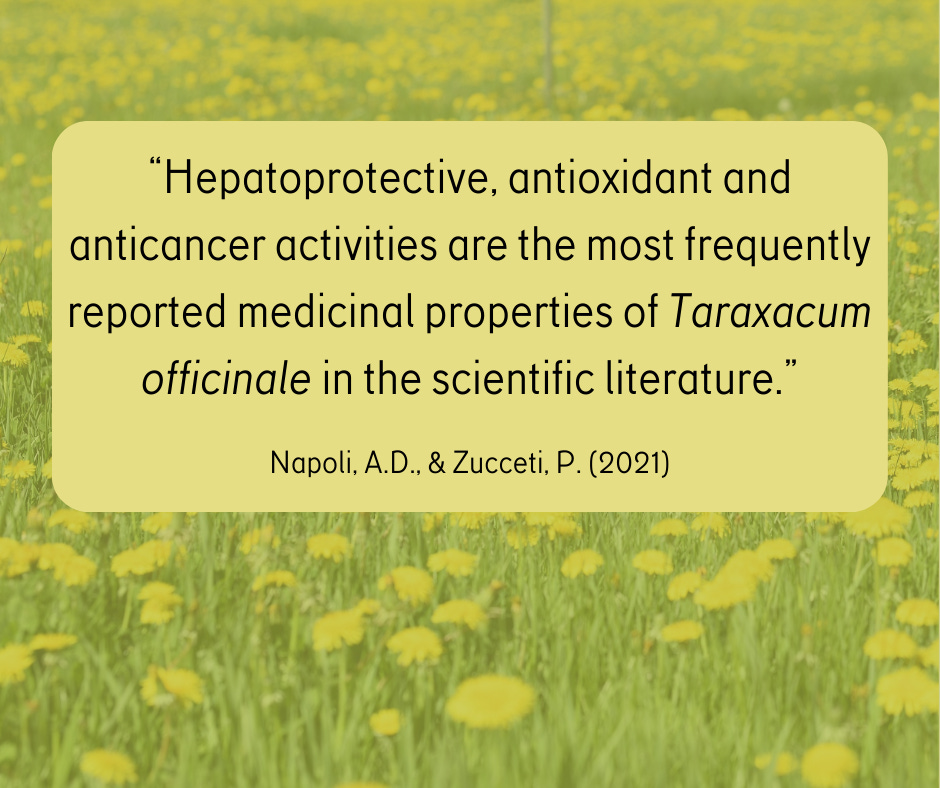Dandelion is Food and Medicine
In the U.S., many people spend vast amounts of time and money trying to exterminate the little dandelion. They think it’s a weed that has no benefit whatsoever.
But did you know that all parts of the dandelion are edible and medicinal? Not just edible, but actually palatable too! It’s the trifecta of herbal goodness.
My yard and pasture are brought to life in the spring with color and the happy buzzing of the bees once the dandelions bloom. This post will highlight what dandelion offers, placing it in a more positive light.
Download a free PDF monograph at the end of the article.
If determination had a face, it would wear a dandelion's bright yellow smile.
The Nitty-gritty
The scientific name for dandelion is Taraxacum officinale. This name is fitting because the leaves have deeply toothed margins and the word dandelion derives from dents de lion which is a French term meaning teeth of the lion.
It belongs to the Asteraceae family (also known as the sunflower family) because each flower head is composed of thousands of tiny ray flowers.
As mentioned all parts are edible - flower, leaves, and root. You’ll know it’s a dandelion if it has a yellow flower (they will always be yellow), and a rosette of leaves attached directly to the tap root.
You’ve probably noticed that when you pick a dandelion flower, the stem will leak a milky sap. This is present in all parts of the plant and has medicinal qualities. Those with latex allergies should keep the sap off their skin to prevent irritation.
Gather the leaves in the spring and the roots in the fall for the highest potency.
Medicinal Benefits & Uses
Flower:
High in antioxidants
Improves immune function
Leaves:
Diuretic - helps with gout and bladder infections, reduces edema
Lowers blood pressure - due to its high calcium content
High in vitamins C, K, A, folate & B vitamins
Antioxidant-rich
Great source of potassium, iron, magnesium & calcium
Decreases allergy symptoms
The leaves work more directly on the kidneys, blood, and urinary tract, while the root is best for the liver.
Root:
Treats mild constipation
Improves digestion
Reduces inflammation in the body
Probiotic: High levels of inulin (but you have to eat the whole root)
High in vitamins C, K, A, folate & B vitamins
Great source of potassium, iron, magnesium & calcium
The bitterness of the roots and leaves curbs sugar cravings. Some studies show dandelion can reduce cholesterol and lower blood glucose levels.
Spiritual Uses:
Divination
Granting wishes
Purification
Healing
Enhances intuition
Herbal Actions
Diuretic
Digestive
Aperient
Alterative
Nutritive
Cholagogue
Contraindications:
Safe if used as food during pregnancy and breastfeeding. Do not use in cases of renal failure, diabetes, or heart failure. Talk to your medical provider if you are taking any prescription medications - especially blood thinners, diuretics (water pills), blood pressure or heart medication, sedatives, and lithium. Possible drug interactions are listed here.
Final Thoughts
Hopefully, this roundup of dandelion information sheds new light on this misunderstood herb and helps you look at it more positively. Add spring leaves to a garden salad or make roasted dandelion root tea in the fall for an added boost of nutrition.
Interesting Facts:
The sap is a defense mechanism of the plant - since it is highly bitter, it prevents herbivores and insects from eating it.
The sap is also effective at killing warts. It needs to be applied frequently to work.
The dandelion is native to Europe and brought over by those same settlers who cultivated it for food and medicine.
Dandelion flower heads can be used to make a yellow-green dye and the leaves will make a purple dye.
References:
A comprehensive review of the benefits of Taraxacum officinale on human health from Bulletin of the National Research Centre
Dandelion from RxList
Herbal Magic: A Handbook of Natural Spells, Charms, and Potions written by Aurora Kane
The Homegrown Herbalist Guide to Medicinal Weeds written by Dr. Patrick Jones
The herbal information provided here is intended to support your overall health and wellness and should not replace medical advice or treatment. It is recommended you consult your medical care provider if you plan to take herbs because they can interact with prescription medications.





